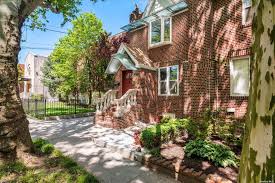What Is a Jumbo Reverse Mortgage and How Does It Work?
A jumbo reverse mortgage is a financial tool that allows homeowners with high-value properties to access their home equity without selling their homes. Unlike traditional reverse mortgages, which have loan limits set by the Federal Housing Administration (FHA), jumbo reverse mortgages cater to those who own properties that exceed these limits. This type of loan provides retirees and older homeowners with financial flexibility, helping them manage their expenses, invest, or simply enjoy their retirement.
Understanding the Basics of a Jumbo Reverse Mortgage
A jumbo reverse mortgage is specifically designed for homeowners whose properties are valued higher than the limits set by the FHA’s Home Equity Conversion Mortgage (HECM) program. Since standard HECM loans have a borrowing cap of approximately $1,149,825 (as of 2024), those with more valuable homes may not be able to tap into the full potential of their equity. A jumbo reverse mortgage allows these homeowners to access more significant funds, often with fewer restrictions.
Unlike conventional mortgages, where homeowners make monthly payments to a lender, a reverse mortgage allows homeowners to receive payments instead. The loan is repaid when the borrower sells the home, moves out permanently, or passes away.
How Does a Jumbo Reverse Mortgage Work?
- Eligibility Requirements
To qualify for a jumbo reverse mortgage, homeowners typically need to meet these criteria:- Be at least 55 or 60 years old (depending on the lender’s requirements).
- Own a high-value home, usually appraised at over $1 million.
- Maintain the property and pay property taxes and homeowner’s insurance.
- Have significant equity in the home.
- Loan Amount and Payment Options
The amount you can borrow depends on the home’s appraised value, your age, and current interest rates. Lenders may offer different disbursement options, such as a lump sum, monthly payments, or a line of credit. Since jumbo reverse mortgages are not FHA-insured, they do not have mortgage insurance premiums, which can lower overall costs. - Interest Rates and Fees
Jumbo reverse mortgage interest rates tend to be slightly higher than standard HECM loans due to the increased risk for lenders. However, these loans offer competitive terms, and some lenders may provide interest rate discounts or incentives for borrowers.
Benefits of a Jumbo Reverse Mortgage
- Higher Loan Limits: Homeowners with high-value properties can access more significant funds compared to standard reverse mortgages.
- No Monthly Mortgage Payments: Borrowers do not have to make monthly payments, reducing financial stress.
- Flexibility in Fund Usage: The money received from a jumbo reverse mortgage can be used for retirement, medical expenses, investments, or any other personal needs.
- No Mortgage Insurance Premiums: Unlike FHA-insured reverse mortgages, jumbo reverse mortgages typically do not require borrowers to pay mortgage insurance.
- Heirs Can Still Inherit the Home: If heirs wish to keep the property, they can repay the loan balance, often through refinancing or selling other assets.
Potential Drawbacks of a Jumbo Reverse Mortgage
- Higher Interest Rates: Compared to traditional HECM loans, jumbo reverse mortgages may come with slightly higher interest rates.
- Limited Lender Options: Since these loans are not FHA-insured, fewer lenders offer them.
- Impact on Heirs’ Inheritance: The loan balance grows over time, which could reduce the amount of inheritance left for heirs.
- Property Maintenance Obligations: Borrowers must continue to maintain the property and pay taxes and insurance, or risk defaulting on the loan.
Jumbo Reverse Mortgage vs. Traditional Reverse Mortgage
| Feature | Jumbo Reverse Mortgage | Traditional Reverse Mortgage (HECM) |
| Loan Limit | Typically over $1 million | $1,149,825 (2024 FHA limit) |
| Mortgage Insurance | Not required | Required (MIP fees apply) |
| Interest Rates | Slightly higher | Lower, but subject to FHA rules |
| Borrower Age | Usually 55 or 60+ | 62+ |
| Disbursement Options | Lump sum, monthly payments, line of credit | Lump sum, tenure, term, line of credit |
Who Should Consider a Jumbo Reverse Mortgage?
A jumbo reverse mortgage is an excellent option for homeowners with significant equity in high-value properties who need additional financial security. It may be ideal for:
- Retirees looking for supplemental income without selling their home.
- Homeowners needing funds for medical expenses or home improvements.
- Individuals who want a financial cushion while keeping their property.
- Those who do not qualify for an FHA-insured reverse mortgage due to property value limits.
How to Find the Best Jumbo Reverse Mortgage Lender
Since these loans are not federally insured, it’s crucial to work with a reputable lender. When searching for the right jumbo reverse mortgage provider, consider the following:
- Compare Interest Rates: Look for competitive rates and terms.
- Check Lender Reputation: Read reviews, verify credentials, and look for complaints.
- Understand Fees: Ensure transparency in closing costs, origination fees, and other charges.
- Consider Loan Flexibility: Choose a lender that offers multiple disbursement options.
- Consult a Financial Advisor: Speak with a professional to assess if a jumbo reverse mortgage aligns with your financial goals.
Common Myths About Jumbo Reverse Mortgages
- You Lose Ownership of Your Home
False. Borrowers retain ownership as long as they meet loan requirements, such as paying property taxes and insurance.
- Your Heirs Cannot Inherit the Home
False. Heirs can repay the loan and keep the home or sell it to settle the balance.
- The Bank Can Force You to Leave
False. As long as the borrower continues to meet obligations, they can live in the home for life.
- Jumbo Reverse Mortgages Are Only for Financially Struggling Homeowners
False. Many financially secure individuals use these loans for investment purposes or to enhance their retirement lifestyle.
Conclusion
A jumbo reverse mortgage is an excellent financial solution for homeowners with high-value properties who want to tap into their equity without selling their home. By offering higher loan amounts, flexible disbursement options, and no mortgage insurance requirements, this loan type provides significant advantages. However, it’s essential to weigh the pros and cons and work with a reputable lender to ensure you make the best financial decision.
For the latest updates and insights on reverse mortgages, stay informed with Reverse Mortgage Daily—your go-to source for news, trends, and expert advice in the industry.














Post Comment